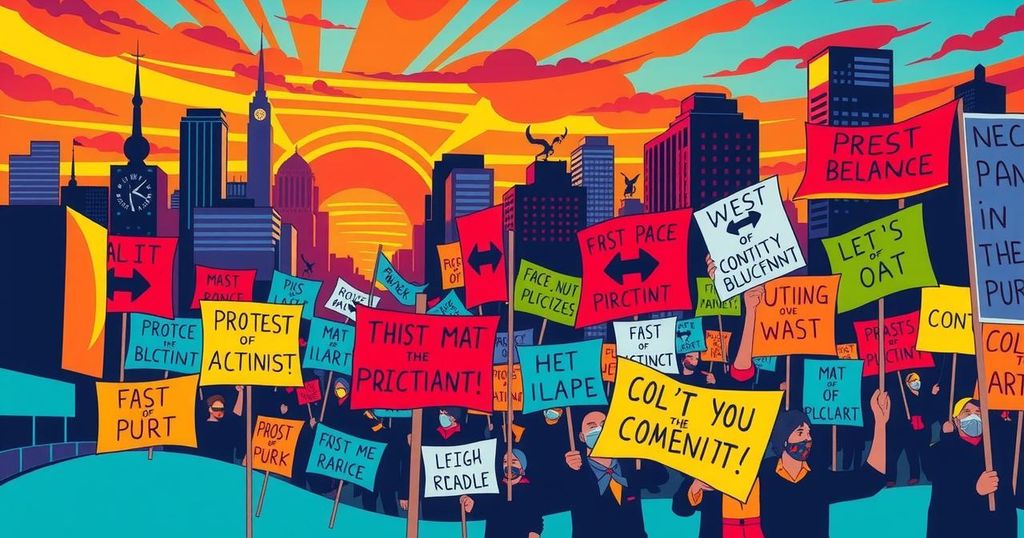Since 2016, global anti-government protests have mobilized millions, driven by economic inequality, political repression, and demands for reform. Notable protests include South Korea’s Candlelight demonstrations (2016-2017), Chile’s Estallido Social (2019), India’s farm bill protests (2020), and anti-Semitism protests in Germany (2024-2025).
Since 2016, a global surge in large-scale anti-government protests has mobilized millions of individuals across various continents, driven by issues such as economic inequality, political oppression, corruption, and calls for democratic reforms. Utilizing data from Statista, this article highlights significant anti-government demonstrations that have left a profound impact in recent years.
In South Korea, the Candlelight Demonstrations from 2016 to 2017 represented a crucial moment in the nation’s democratic evolution. Triggered by a political scandal involving then-President Park Geun-hye, these peaceful protests amassed millions of citizens, ultimately resulting in the impeachment and removal of a sitting president, thus marking a historic event in South Korean democracy.
The subway fare protests in Santiago, Chile, in October 2019 ignited what would become one of the largest social uprisings in the nation’s contemporary history. Initially sparked by a minor fare increase, the movement — known as the “Estallido Social” (Social Outburst) — revealed entrenched issues of economic inequality, social injustice, and public dissatisfaction with the political framework.
In India, 2020 saw substantial protests led by farmers from Punjab, Haryana, and Uttar Pradesh against three newly enacted agricultural laws. Aimed at liberalizing the agricultural sector, these laws generated fears of corporate exploitation and dismantling support systems for farmers, leading to a widespread movement that attracted international focus and solidarity.
Most recently, between 2024 and 2025, protests against rising anti-Semitism erupted in Germany, with thousands marching in Berlin to condemn increasing anti-Semitic violence and rhetoric. Organized by civil society groups and political entities, slogans such as “Never Again is Now” resonated throughout the capital, and similar demonstrations occurred in cities like Hamburg, Frankfurt, Munich, Cologne, and Leipzig, highlighting a nation-wide response.
The unprecedented anti-government protests since 2016 signify a growing global movement reflecting widespread dissatisfaction with various socio-political issues. From South Korea’s Candlelight protests and Chile’s Estallido Social to India’s farmer-led demonstrations and Germany’s anti-Semitism protests, citizens across the globe have mobilized to challenge systemic injustices, pushing for accountability and reform within their governments.
Original Source: globalsouthworld.com




